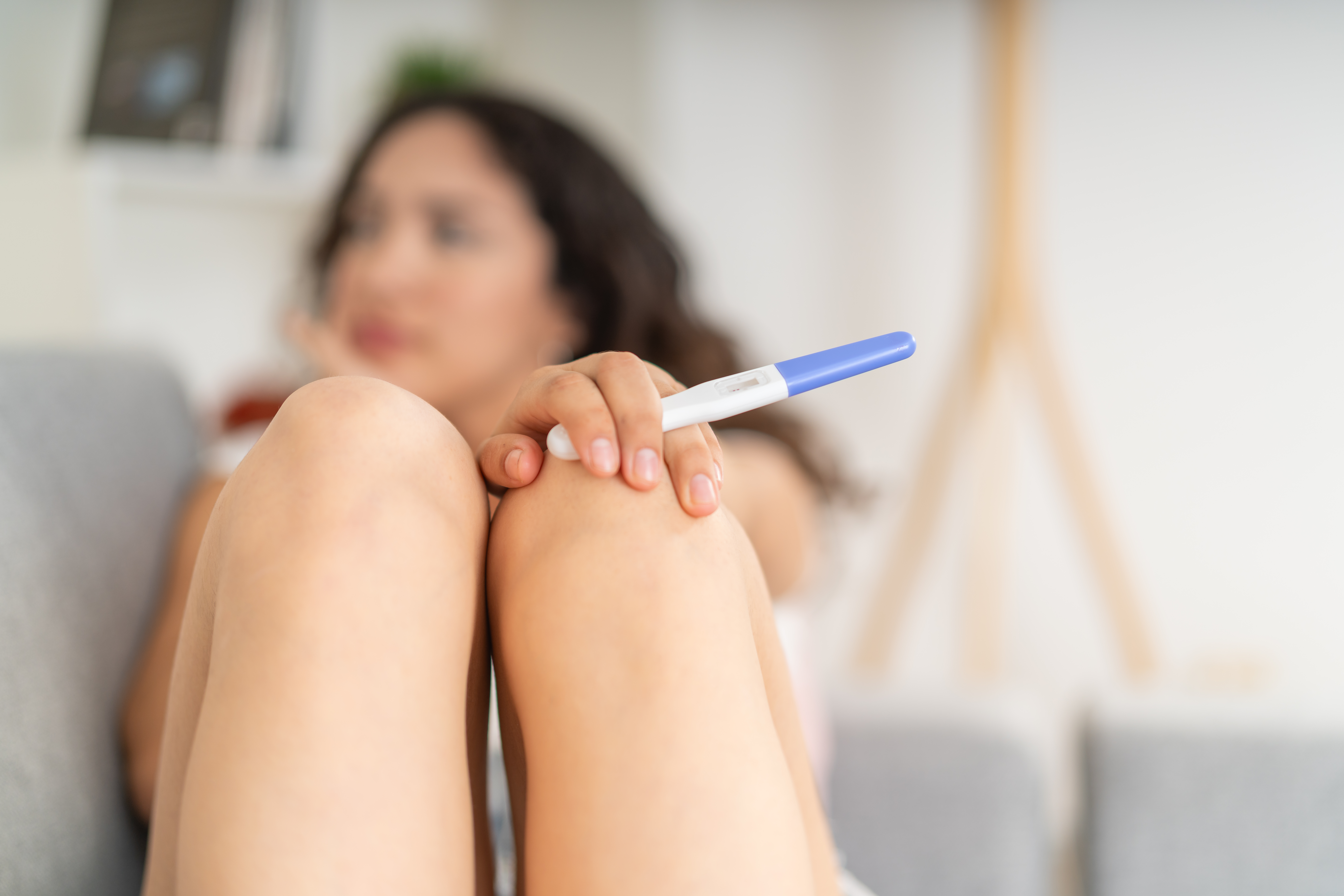25 Foolproof Strategies to Boost Your Baby-Making Power
It can be incredibly frustrating when the eagerly anticipated journey to parenthood encounters unexpected delays. Conception, a marvel of biological timing, is influenced by a delicate dance of factors, many of which are intimately tied to our daily habits and overall well-being. Far from being random, fertility is a complex process that can be subtly nudged in the right direction through conscious choices. This article cuts through the noise to unveil 25 foolproof strategies designed to significantly boost your baby-making power. We delve beyond surface-level advice, offering specific, scientifically informed insights into how targeted lifestyle adjustments can optimize both male and female fertility, paving a clearer path toward conception.
1. Embrace a Nutrient-Dense, Fertility-Focused Diet

Beyond just "balanced," a truly fertility-boosting diet prioritizes specific micronutrients. For women, adequate folate is crucial for early neural tube development, while iron supports healthy ovulation. Men benefit from zinc for sperm production and selenium for sperm motility. Both partners need Vitamin D for hormonal balance and cellular health. Focus on colorful fruits and vegetables, whole grains, and lean proteins, emphasizing healthy fats like avocados and nuts. This nutrient synergy optimizes reproductive health, creating a more hospitable environment for conception and early embryonic development, making every bite count.
2. Prioritize Plant-Based Proteins for Ovulatory Health

For women, substituting a small percentage of animal protein with plant-based alternatives can significantly improve ovulatory fertility. Studies suggest replacing just 5% of total caloric intake from animal protein (especially red meat) with vegetable protein sources like beans, lentils, tofu, and nuts can reduce the risk of ovulatory infertility by over 50%. The mechanism is complex but may involve differences in growth factors and hormonal responses associated with various protein types. This shift is not about going fully vegetarian, but strategically choosing plant power for a more consistent ovulation cycle.
3. Elevate Your Nutrition with Targeted Prenatal Multivitamins

While a healthy diet is foundational, a high-quality prenatal multivitamin acts as an essential nutritional safety net. Beyond generic vitamins, look for formulations specifically designed for preconception, rich in active folate (methylfolate) to prevent neural tube defects, adequate Vitamin D for hormonal regulation, and B12 for cellular division. Iodine is also critical for thyroid function, impacting ovulation. These supplements ensure both partners receive optimal levels of key micronutrients, supporting egg and sperm quality, promoting healthy ovulation, and preparing the body for the rigorous demands of pregnancy, minimizing early miscarriage risk.
4. Master Hydration for Optimal Reproductive Function

Adequate hydration is a silent hero in the conception journey, impacting female fertility in a subtle yet crucial way. Cervical fluid, often overlooked, plays a vital role in conception by creating a hospitable environment for sperm, aiding their journey through the reproductive tract, and even nourishing them. When the body is dehydrated, cervical fluid can become scant or too thick, hindering sperm mobility and survival. Prioritize pure water intake throughout the day. Listen to your body's thirst cues, and ensure your urine is pale yellow to support healthy cervical fluid production.
5. Wisely Reduce Caffeine Intake for Fertility

While a morning coffee is a ritual for many, excessive caffeine consumption can subtly interfere with conception for both partners. High caffeine intake in women has been linked to increased time to conceive and higher miscarriage rates, potentially by affecting hormonal balance and ovulation. For men, some studies suggest it may impact sperm quality. Instead of abrupt cessation, gradually reduce intake by opting for decaf alternatives, herbal teas, or simply limiting yourself to one caffeinated beverage per day. This gentle reduction can support a more balanced reproductive system.
6. Consciously Avoid Pesticides and Herbicides

Environmental toxins like pesticides and herbicides pose a significant, often unseen, threat to both male and female fertility. In men, exposure can lead to reduced sperm count, decreased motility, and damaged sperm DNA. For women, these chemicals can disrupt delicate hormonal balances, impacting menstrual regularity and ovarian function. To minimize ingestion, prioritize organic fruits and vegetables, especially those on the "Dirty Dozen" list (foods with high pesticide residue). Thoroughly washing non-organic produce and opting for safer garden chemicals can significantly reduce exposure.
7. Proactively Manage Workplace Environmental Exposures

Certain occupational exposures can significantly impair fertility, making workplace awareness crucial. For men, exposure to industrial chemicals like heavy metals (lead, mercury), solvents (e.g., in dry cleaning, manufacturing), and radiation can damage sperm production and quality. For women, similar exposures, including nitrous oxide (common in healthcare settings) and jet fuel, can disrupt menstrual cycles and ovarian function. Always use appropriate protective gear (masks, gloves, ventilation). Additionally, discuss consistent shift schedules with your employer, as rotating shifts can throw off hormonal rhythms.
8. Strictly Limit or Eliminate Alcohol Consumption

Alcohol consumption is a well-documented deterrent to conception and a clear risk during pregnancy. For women, even moderate drinking can alter estrogen levels, interfering with ovulation and the critical process of egg implantation. For men, alcohol can negatively impact sperm quality, count, and motility, while also potentially reducing testosterone levels. Once pregnant, any alcohol can harm a developing fetus, leading to Fetal Alcohol Spectrum Disorders. The safest approach during the preconception phase, and definitely during pregnancy, is to entirely abstain from alcohol.
9. Commit to Complete Smoking Cessation

Smoking is a detrimental habit with profound, irreversible consequences for fertility in both men and women. In women, cigarette chemicals directly damage eggs, inhibit fertilization, and prematurely age the ovaries, effectively making a 35-year-old smoker's ovaries function like a 42-year-old's. For men, smoking significantly reduces sperm count, motility, and increases DNA fragmentation. Quitting smoking immediately offers substantial, rapid benefits to reproductive health, improving the chances of conception and reducing risks for a healthy pregnancy. Seek comprehensive support to achieve cessation.
10. Scrutinize Your Medicine Cabinet with a Healthcare Provider

Many commonly prescribed and even over-the-counter medications can impact fertility or are unsafe during pregnancy, a critical step often overlooked. Certain NSAIDs (like ibuprofen) can interfere with ovulation, while some antidepressants or cold medications may subtly affect reproductive hormones or sperm quality. Before actively trying to conceive, compile a complete list of all medications, supplements, and even herbal remedies you and your partner are taking. Have an open and thorough discussion with your healthcare provider to ensure your regimen is conception-friendly and safe for early pregnancy.
11. Achieve and Maintain a Healthy Body Weight

Both excessive body fat and being significantly underweight can profoundly disrupt the delicate hormonal balance required for conception. For women, excess body fat can lead to insulin resistance and overproduction of hormones like estrogen and androgens, which disrupt ovulation and lead to irregular or absent menstrual cycles. Being underweight can signal to the body that it's not safe for pregnancy, suppressing ovulation. Aim for a healthy Body Mass Index (BMI) as a guideline, but focus on achieving a healthy body fat percentage through balanced nutrition and moderate exercise.
12. Embrace Moderate Exercise, Avoid Over-Exercising

Regular physical activity is vital for overall health, but when trying to conceive, there's a fine line between healthy movement and excessive exercise. Strenuous, prolonged, or high-intensity exercise can sometimes create physiological stress, leading to a condition called hypothalamic amenorrhea, where the body's energy drain and hormonal disruption suppress ovulation. Instead, embrace moderate, consistent activity like brisk walking, swimming, cycling, or gentle yoga. Listen to your body, ensure adequate calorie intake, and prioritize overall well-being over extreme workouts to support a regular, fertile cycle.
13. Diligently Track and Understand Your Menstrual Cycle

One of the most foundational and foolproof strategies for boosting baby-making power is gaining an intimate knowledge of your menstrual cycle. Tracking the exact days your period begins and ends, coupled with observing other fertility signs, provides crucial insights into your unique cycle length and ovulation patterns. Tools like fertility apps, simple calendar charting, or even just pen and paper can help. Pinpointing your typical ovulation day allows you to accurately identify your "fertile window" – the few days leading up to and including ovulation – which is paramount for timed intercourse.
14. Chart Your Basal Body Temperature (BBT) Consistently

Basal Body Temperature (BBT) charting is a low-tech yet highly effective method for confirming ovulation. Your BBT is your lowest body temperature during a 24-hour period, taken immediately upon waking, before any activity. After ovulation, the hormone progesterone causes a slight but sustained rise in BBT (typically 0.4-1.0°F). By charting your temperature at the same time each morning over several months, you can identify this post-ovulatory shift. This confirms that ovulation has occurred, providing valuable retrospective data to pinpoint your fertile window in future cycles.
15. Meticulously Assess Your Cervical Mucus Changes

Observing changes in cervical mucus throughout your cycle offers direct, tangible clues about your fertility window. After your period, mucus is often scarce or sticky. As ovulation approaches, estrogen levels rise, causing cervical mucus to become progressively more abundant, wet, clear, and stretchy, resembling raw egg white. This "egg white cervical mucus" (EWCM) is crucial as it protects, nourishes, and helps transport sperm. Learning to identify this fertile-quality mucus provides an invaluable, often daily, indicator that ovulation is imminent and it's your most fertile time.
16. Employ Ovulation Predictor Kits (OPKs) for Precision

For those seeking more precise, real-time prediction of ovulation, over-the-counter Ovulation Predictor Kits (OPKs) are a valuable tool. These kits detect the surge in Luteinizing Hormone (LH) that occurs approximately 24-36 hours before ovulation. By testing daily during your anticipated fertile window, you can identify this LH surge, signaling your most fertile days. While not 100% accurate (they predict, not confirm, ovulation), combining OPKs with cycle tracking and cervical mucus observation significantly narrows down your fertile window, making timed intercourse more effective.
17. Schedule a Comprehensive Pre-Conception Health Provider Visit

Before actively trying to conceive, a pre-conception visit with a healthcare provider (OB-GYN, midwife, or family doctor) is a crucial, often overlooked, step. This visit allows for a thorough review of your medical history, current medications, vaccinations, and any hereditary fertility issues that might run in your family. Your provider can offer personalized lifestyle recommendations, address any underlying health conditions, and ensure you're both physically and nutritionally prepared for pregnancy. It's a proactive step to optimize health for a smooth conception journey.
18. Prioritize Dental Health for Both Partners

The health of your gums and teeth might seem unrelated to conception, but it plays a significant role in overall health, impacting pregnancy outcomes. Periodontal disease (gum disease) is linked to inflammation throughout the body, and research suggests a connection to adverse pregnancy outcomes, including preterm birth and low birth weight. Before conceiving, ensure both partners have a dental check-up and address any gum disease or cavities. Maintaining excellent oral hygiene is vital, as a healthy mouth contributes to a healthier systemic environment for successful conception and pregnancy.
19. Implement Robust Stress Reduction Techniques

Chronic stress is a powerful physiological disruptor, impacting fertility in both men and women. In women, sustained high levels of cortisol (the stress hormone) can throw off the delicate balance of reproductive hormones, potentially delaying or disrupting ovulation. In men, stress can negatively affect sperm quality and testosterone levels. Incorporate diverse stress management techniques into your daily routine: mindful meditation, yoga, regular massages, spending time in nature, or engaging in hobbies. Reducing tension creates a more relaxed internal environment conducive to conception.
20. Cultivate Optimal Sleep Habits for Reproductive Wellness

Quality sleep is a fundamental, yet often underestimated, pillar of reproductive health for both partners. During sleep, the body regulates vital hormones like prolactin and leptin, both of which are critical for fertility. Low prolactin levels can contribute to infertility, while too little leptin can cause irregular or absent menstrual periods. For men, sleep deprivation can impact testosterone production and sperm quality. Aim for 7-9 hours of uninterrupted, quality sleep nightly to optimize hormonal balance, egg and sperm quality, and overall reproductive function.
21. Engage in Consistent, Well-Timed Intercourse

It might seem obvious, but consistent and well-timed sexual intercourse is the most direct strategy to boost baby-making power. For women, regular sex (2-3 times a week, or more frequently around ovulation) can actually contribute to more predictable menstrual cycles, possibly due to hormonal signals exchanged during intercourse. For men, regular ejaculation helps ensure a fresh supply of healthy sperm. Avoid "saving up" sperm, as it can lead to poorer quality. Focus on intimacy and enjoyment, especially within the identified fertile window.
22. Opt for Fertility-Friendly Lubricants (or None at All)

Many common personal lubricants, even water-based ones, can create a hostile environment for sperm. Their pH levels, osmolarity, and certain ingredients can be spermicidal or significantly impede sperm motility, making it harder for them to reach the egg. Even some natural alternatives like olive oil are not recommended as they can form a barrier. If lubrication is needed, specifically choose "fertility-friendly" lubricants (often labeled as "sperm-friendly" or "conception-friendly") designed to mimic natural fertile cervical fluid, ensuring sperm can move freely.
23. Strictly Avoid Vaginal Douching Practices

While some women may believe douching promotes hygiene, it is strongly discouraged, especially when trying to conceive, as it actively harms vaginal health and fertility. Douching disrupts the delicate natural balance of bacteria in the vagina, killing off beneficial protective bacteria. This imbalance increases the risk of bacterial vaginosis (BV) and other infections, which can lead to inflammation, pelvic inflammatory disease (PID), and are linked to both infertility and increased miscarriage risk. The vagina is self-cleaning; avoid douching for optimal reproductive health.
24. Optimize Male Scrotal Temperature for Sperm Health

Beyond general lifestyle, male fertility can be significantly impacted by scrotal temperature, a less obvious but crucial factor. Sperm production (spermatogenesis) is sensitive to heat, and consistently elevated temperatures can reduce sperm count, motility, and morphology. Advise male partners to avoid prolonged hot baths, hot tubs, saunas, and wearing overly tight underwear. Keeping the testes cool promotes optimal sperm health. This seemingly small adjustment can contribute significantly to improving sperm quality and overall male reproductive function.
25. Conduct a Comprehensive Pre-Conception Genetic Screening

For couples proactively planning conception, pre-conception genetic screening can provide invaluable information, moving beyond just lifestyle factors. These screenings identify if either partner carries genes for certain recessive genetic disorders (like cystic fibrosis, spinal muscular atrophy, or Fragile X syndrome) that could be passed on to their child. While not directly "boosting" fertility, understanding these risks allows for informed decision-making, genetic counseling, and proactive planning for potential outcomes or alternative family-building options, ensuring a healthier path forward.
Unlocking Fertility: Empowering Your Conception Journey

Embarking on the journey to conceive is a deeply personal experience, and as these 25 foolproof strategies reveal, you hold significant power in optimizing your path to parenthood. From meticulously curating a fertility-focused diet and harnessing the precision of cycle tracking to proactively managing stress, sleep, and even genetic factors, every conscious choice contributes to a more hospitable environment for conception. This isn't just about making babies; it's about embracing a holistic commitment to your reproductive well-being as a couple. By applying these specific, actionable, and often overlooked strategies, you empower yourselves with knowledge and agency, transforming frustration into a proactive, hopeful, and ultimately more successful journey toward welcoming a new life.